14 BRILLIANT ANIME INTENDED FOR INTELLIGENT VIEWERS
The best anime are heralded for featuring captivating, unique visuals and complex characters who grow and mature over time. Despite all this, anime stories aren't always super complex. Particularly in shonen series, narrative arcs often boil down to an endless series of battles, a loner hero who eventually achieves social acceptance, or a one-sided crush that will probably never pan out.
However, anime is a sprawling style, and there's room for thought-provoking, intelligent anime, in addition to the slew of high school dramas and tournament arcs. Some smart anime series tackle mature themes, such as Ghost in the Shell, which dares to question the nature of humanity. Other shows offer a critique of traditional anime conventions; after you finish Neon Genesis Evangelion, you'll probably think about your favorite shows in a whole new way. These brilliant anime aren't for everyone, but for viewers looking to expand their minds, they can take you to places you'd never previously considered.
1. Monster
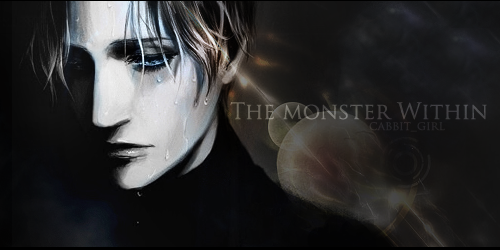
In Monster, Dr. Tenma is a talented Japanese neurosurgeon living in Germany, who reunites with Johan Liebert — a former patient of his nine years after saving his life. Unfortunately, Johan has gone on to become a murdering psychopath. Later, Dr. Tenma learns Johan was a product of a government plot to create psychologically altered supersoldiers in East Germany, and he swears to save Johan's life by putting an end to the atrocities.
Monster explores the dynamic between patient and doctor; if you save someone's life, and that person goes on to do something bad, how complicit are you in the misdeed?
2. Psycho-Pass
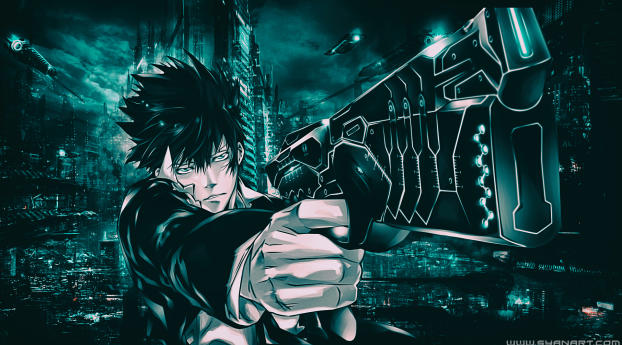
The dystopian sci-fi series Psycho-pass follows Kogami as he enforces for the Sybil System, a government-run program that constantly scans the public's mental state to assess whether individuals have "latent criminal" traits. This allows authorities to stop violent criminals before they actually commit any crimes.
Even if an individual's mental state changes after a traumatic incident, this could still raise red flags, leading to their detention. The series questions the idea of the inherent criminal, and whether arresting people before they do anything wrong is ethical, provided the illegal act is definitely going to occur. After watching this show, you'll probably be left wondering whether such a system could work in real life, or whether we'd even want it to.
3. Ghost In The Shell
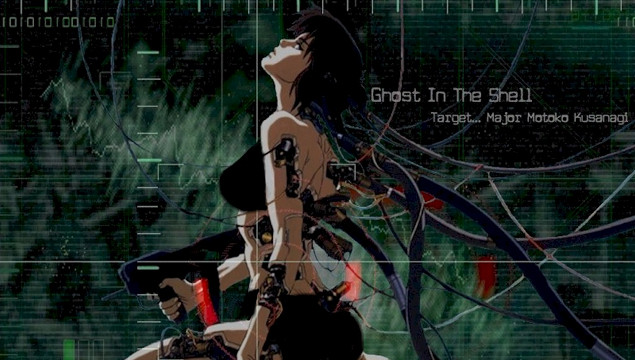
In the futuristic Japanese city of Niihama, most people have cybernetic enhancements, or depend on robots for their daily needs. When a virus begins wreaking havoc on the populace, Captain Kusanagi is tasked with investigating a series of murders associated with the outbreak, which leads to her discovering dark secrets about herself.
Ghost in the Shell is a landmark film that questions morality in a futuristic age. It also offers an interesting glimpse at what the world may be heading towards as humanity becomes increasingly dependent on technology.
4. Death Note
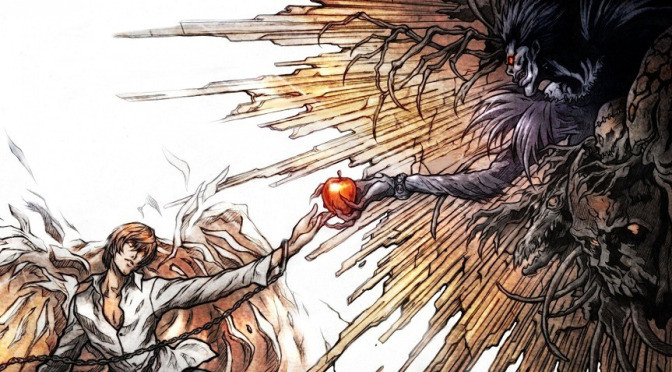
Light Yagami is a pretty normal high school student, up until he finds notebook dropped by a Shinigami (a Japanese Grim Reaper). He soon discovers that anyone whose name is written in the book dies, and he can even specify the way in which they meet their end. Light quickly begins using the book to murder criminals and inflict his own brand of justice upon those who stand in his way.
Death Note presents viewers with a variety of morally gray situations, and explores the ways in which power can be abused, even when it is in supposedly good hands. Sure, most of the people Light murders are on the wrong side of the law, but is he any better than them?
5. Ergo Proxy

After a series of ecological disasters, most of humanity left Earth, and those who weren't lucky enough to escape survive in massive domed cities alongside robots called AutoReivs. In one of the domes, a detective named Re-L Maier is investigating a series of murders committed by a Proxys, god-like AutoReivs tasked with ruling over and protecting the remaining human settlements.
While the Proxys aren't supposed to be sentient, some have begun to think for themselves, and have rejected the ideas instilled in them by their creators. Ergo Proxy is a cybernetic take on the rapture, and leaves audiences wondering about the true goal of humanity, and the relationship between humans and machines.
6. Terror In Resonance
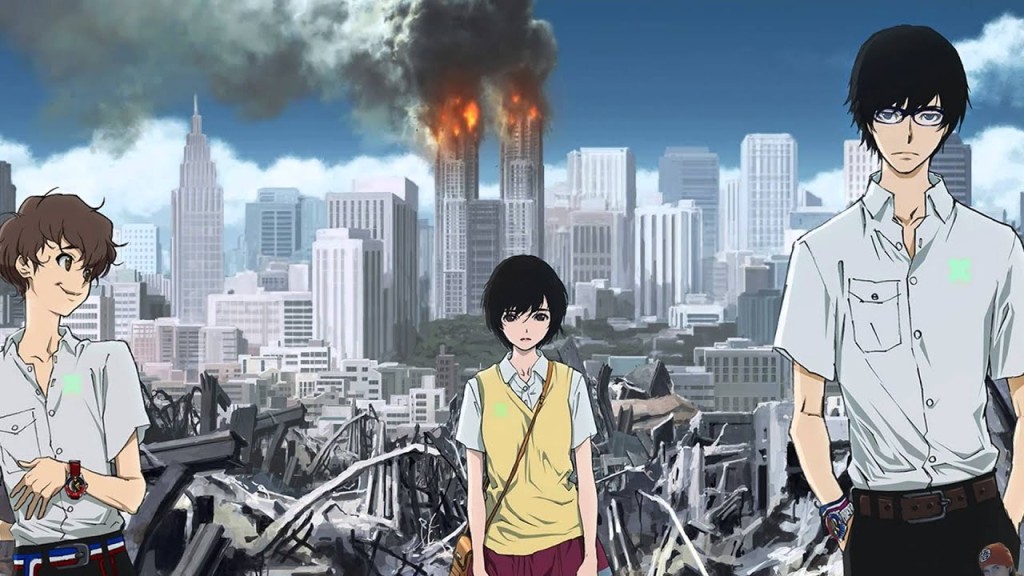
At the start of Terror In Resonance, a terrorist attack carried out by by the mysterious group called Sphynx leaves Tokyo devastated. Twelve and Nine — the ringleaders of Sphynx — are escapees from a government facility where they were subjected to horrific experiments.
The series grapples with the wide-reaching effects of terrorism, and explores the motivations of terrorist groups in a way that is equal parts horrific and humanizing. Both Twelve and Nine are incredibly intelligent, and they see the consequences of their actions as part of a game they're forcing the citizens of Tokyo to play. In a world that often refuses to acknowledge the median between extremist beliefs and the accepted norm, it's chillingly refreshing to get a glimpse into the logic behind why someone might carry out such a ruthless act.
7. Perfect Blue

Perfect Blue follows J-pop sensation Mima Kirogue on her rise to stardom. Unfortunately, as her career explodes, her grip on reality begins to fade, and she begins to alienate those closest to her. Perfect Blue explores real-world issues that many celebrities face on a daily basis, as well as the negative effects of popularity.
The film questions the human mind's capacity for trauma, and asks the viewer to consider whether psychological wounds can ever truly heal.
8. Neon Genesis Evangelion
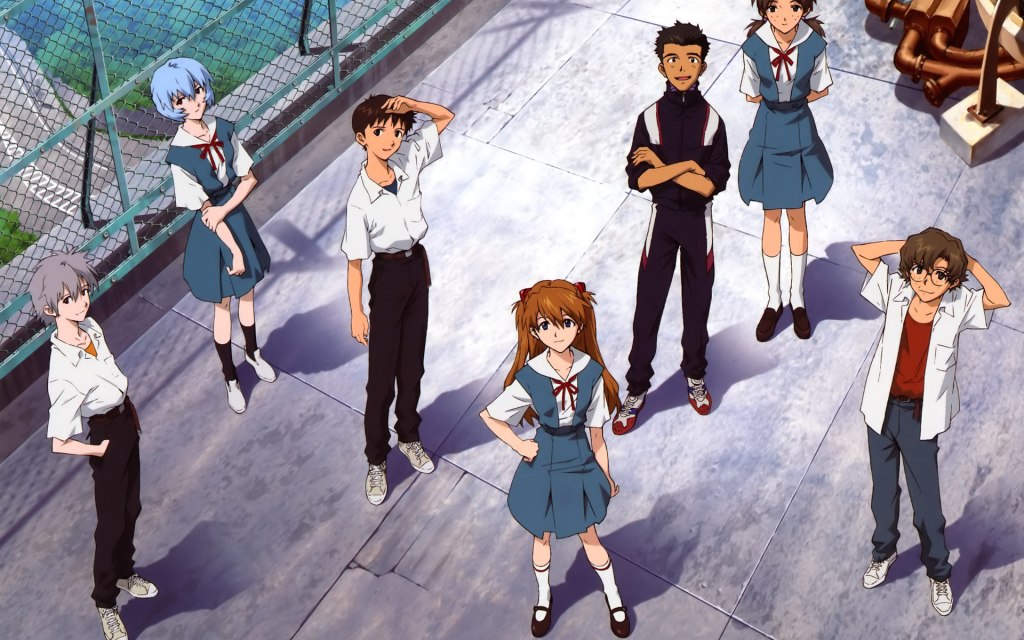
In the world of Neon Genesis Evangelion, humanity is working hard to recover from the appearance of the horrific Angels, humongous extraterrestrial monsters who caused a global cataclysm in the year 2000. As the show starts, the year is 2015, and it seems as though the Angels' return is imminent. Earth's only defense against these beasts are Eva Units, towering creatures in metal armor piloted by children.
While the series is loaded with badass mecha fights, equal attention is spent chronicling the psychological toll piloting the Evas takes on the young heroes. The protagonists feel every last blow, and climatic fights are often followed by months-long stints in hospital wards. In many ways, it seems like the show is trying to subvert the shonen narrative, as the best thing protagonist Shinji Ikari can hope for is a normal, non-heroic life. While most anime heroes' special abilities lead them on great adventures, Shinji's bring him nothing but physical and mental pain.
9. Case Closed
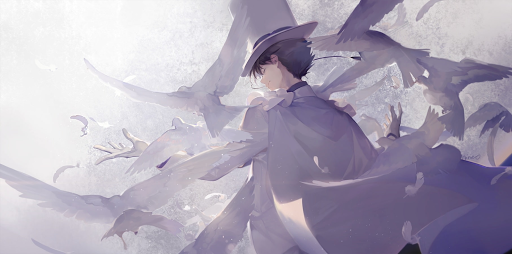
At the start of Case Closed (AKA Detective Conan in Japan), teenage super-sleuth Jimmy Kudo is transformed into a child after his detective work garners the attention of a mysterious crime syndicate. Luckily, the transformation is only physical, and his genius brain remains as quick as it ever was. Once he recovers, Jimmy gets to work tracking down the men who poisoned him, and adopts the alias Conan Edogawa to keep his true identity secret. Since he needs a place to live, he moves in with his childhood friend and love interest Rachel, whose father is a down-on-his-luck private investigator. When Conan/Jimmy starts hanging around their house, he's able to subtly help Rachel's dad solve crimes, all while keeping his true identity a secret.
Pretty much every episode of the series presents viewers with a new mystery, and those with an attentive eye can sometimes crack the cases before the characters do. If you enjoy reading classic detective stories like Sherlock Holmes, then you'll love trying to piece together the show's various whodunits.
10. Hack//Sign
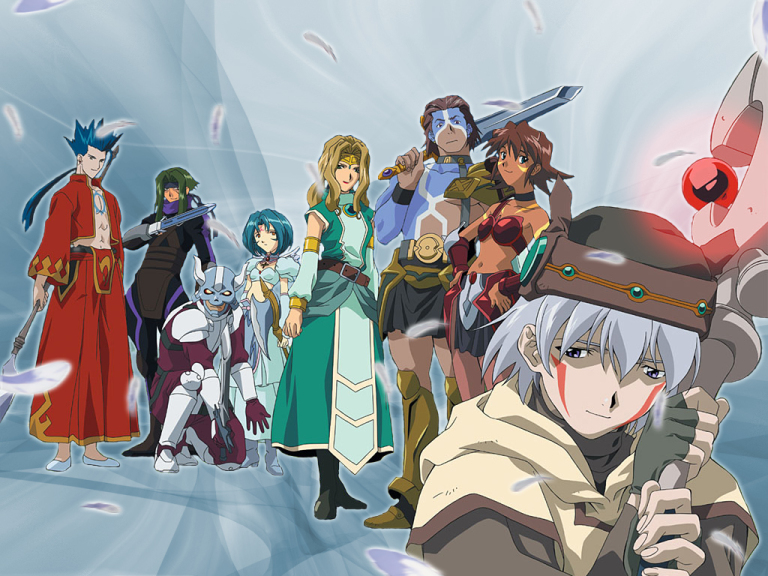
Hack//Sign tells the story of a young girl whose consciousness becomes stuck in an MMORPG. Unlike similar shows, such as Sword Art Online or Log Horizon, Tsukasa is alone in her predicament, as everyone around her is electing to play the game in their free time. The show is constantly exploring complex issues of gender (Tsukasa is a girl, but in the game her character is a boy), existentialism (where does a video game character's consciousness go when they die and respawn?) and digital space (the characters uncover parts of the game that players weren't meant to access).
If that's not enough to get you going, then you should know the series is totally down to casually drop references to great works of literature like Waiting For Godot.
11. Higurashi When They Cry
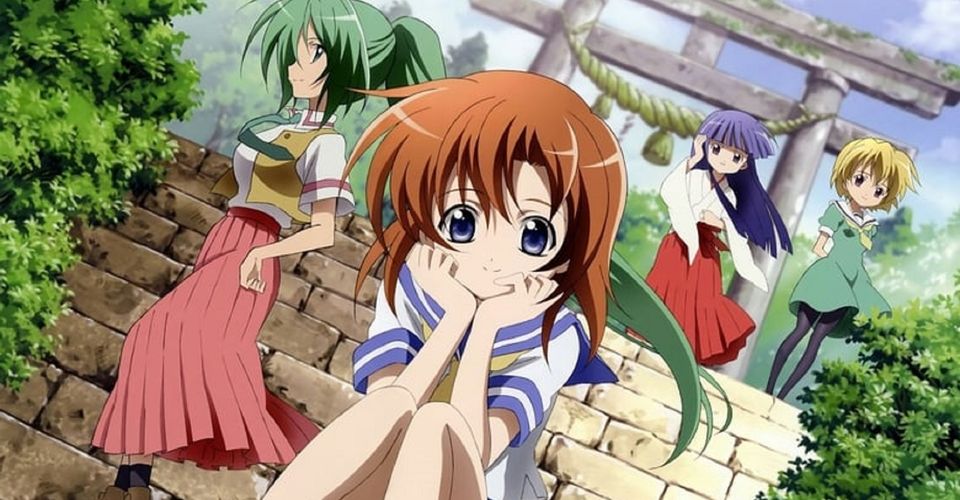
Every year, someone dies at the Watanagashi Festival in the village of Hinamizawa, and another person goes missing. The village tries to ignore the annual happenings, but it's all that Keichi — a newcomer to the area — can think about. Higurashi When They Cry chronicles various characters' decent into paranoid psychosis, as every six episodes, the plot resets after a different person loses their mind, and another gets murdered.
The show constantly keeps the audience guessing, as it's never quite clear who the murderer is, why they're committing such attrocities, and what dark entity is at work in the village. This is a truly creepy anime that explores how paranoia can evolve into something much more violent if left untreated. Be careful who you trust.
12. Battle Angel Alita

In Battle Angel Alita, the world's elite have moved into the floating city of Zalem, leaving the commoners to fend for themselves in an ocean of garbage and scrap metal. While there are plenty of cool sci-fi anime to choose from, Alita stands apart by backing up the majority of its lore with plausible pseudoscience. Cyborgs coexist with humans, but they also need the spine of a human being to live, since technology has not advanced to the point where an artificial brain can send signals to a mechanical body without an organic link.
This gives rise to a horrifying new black market for spinal cords, which, like everything else on the show, is explained down to the tiniest detail. On top of that, many of the show's characters are well-read, and one of the first major villains lovingly quotes Nietzsche before declaring, "the mind is nothing more than a plaything for the body."
13. Welcome To The NHK
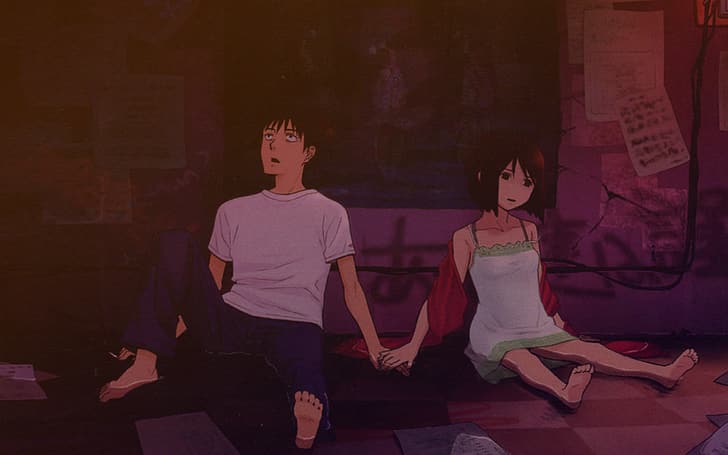
Welcome to the NHK follows the atypical life of a hikikomori, or someone who has seceded from public life in favor of extreme isolation. Sato, the shows main hikikomori, meets an ambitious high school student named Misaka, who claims to have a cure for his introverted condition. Mikasa starts cracking Sato's outer shell by exposing him to the world, and by challenging him to get outside more.
The show documents a lifestyle that many non-Japanese viewers may never have encountered, and explores the negative effects societal pressures can have on withdrawn individuals. Hikikomori is actually a huge problem in Japan, as in 2010, it was reported that some 700,000 individuals evidence traits in-line with the condition. If you want to learn more about the ailment, this show is a great place to start.
14. The Great Passage
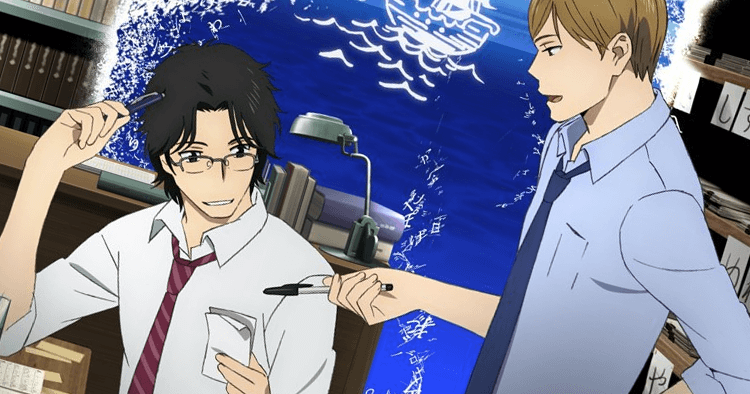
Have you ever wanted to see all the hard work that goes into creating a dictionary? If you answered yes, then The Great Passage is just the show you've been waiting for. The series follows Kouhei Araki, a seasoned dictionary editor who wants desperately to construct a new volume before he retires. To achieve this lofty goal, he enlists the help of Mitsuya Majime, a socially awkward salesman who cares deeply about language.
While the show takes a few liberties to add drama to an otherwise mundane editorial office, it still does a good job of showing viewers the trials and tribulations that go into constructing a language index. For scholarly fans of the written word, this series is an absolute must.


Comments
Post a Comment